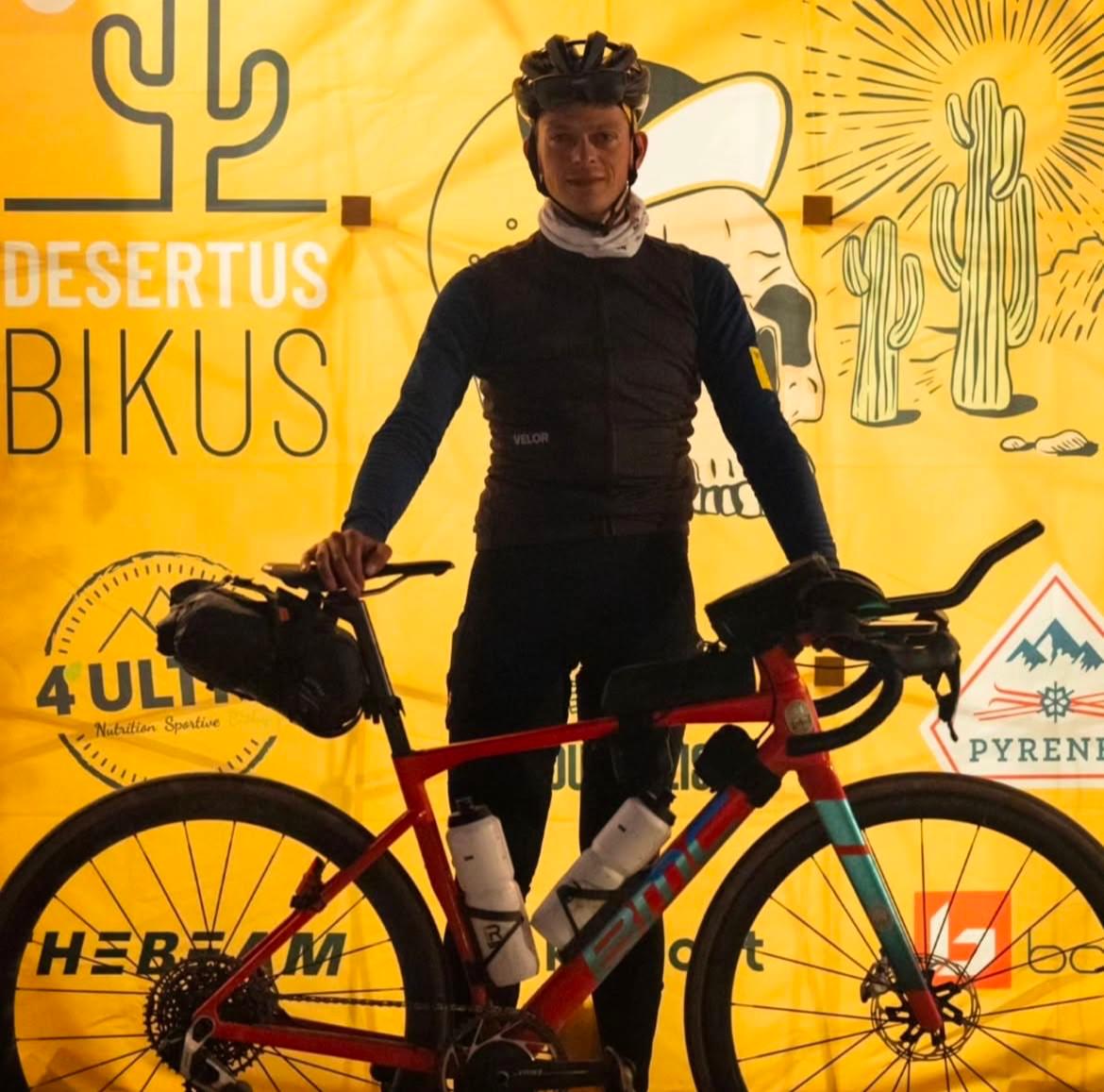
How to prepare for a long-distance bike race?
By Florian Jardin
How to prepare for a long-distance bike race?
Advices from Florian Moreau
We had the chance to talk with Florian Moreau, a long-distance cycling enthusiast and ambassador of our brand Velor. Through his experiences and challenges, he gave us his secrets to prepare for ultra-distance events. A preparation that takes on its full meaning as he prepares to take on an extraordinary challenge: an adventure of 15,000 km in 44 days in the spring of 2025. With one objective: zero carbon emissions!
Physical preparation: between pleasure and discipline
How do you prepare physically for a long-distance race like the Race Across France, which stretches over 2600 km?
Florian Moreau shares his approach with us:
I'll tell you: do it by feeling. It must remain a pleasure above all.
My recommendation is to really start structured training two months before the race. The idea is to gradually increase the distances: start with a 100 km ride, then follow up with a 200 km ride, a 300 km ride and finally a 500 km ride, for example. This allows you to prepare your body and mind for prolonged effort."
But be careful, the final preparation phase is just as essential: "A month before the race, you have to drastically reduce the distances to avoid accumulated fatigue and arrive in good shape on the day.
The key to motivation: why gets started?
Even before talking about training, Florian insists on a fundamental point: motivation.
The main thing is to ask yourself the question: why am I doing this race? What really motivates me?
Before embarking on a training program, you need to define your goals: do I just want to finish the event or aim for a time? Is it adventure that fascinates me or pure performance?"
Depending on the objective, the preparation and management of the race will be very different.
Endurance and sleep: strategic management
For those who want to participate in competition mode, sleep management becomes a major challenge.
If you want to perform well, you have to be prepared to sleep outside and especially to sleep little. To give you an example: in the Race Across France, I only slept 11 hours in six days of racing.
This is how I distributed my sleep: the first night, I did not sleep at all; the second night, only 1h30; and for the following ones three hours per night.
An extreme pace that requires a great ability to adapt, a well-rehearsed strategy and excellent effort management.
Note that another strategy is to get more sleep to recover better, but this requires the ability to maintain a high average speed.
How to sleep well in a long-distance race?
Sleeping in a race depends heavily on the season and the weather conditions. Florian explains his approach to optimizing his moments of rest:
Personally, I always carry with me a very good goose down duvet, very warm and above all very compact. And if it's cold, I always have an extra survival blanket, which is called a bivy. It's a thin layer to add over the down for more insulation."
If you are looking for more comfort, he recommends bringing a mattress, but for those who do without one, the choice of location is crucial:
The ground can be very cold! For example, avoid concrete floors that left me with a very bad memory because they are so icy.
Florian also shares his experiences of bivouac in a race:
I spent a few pleasant nights in a bus shelter on a bench, just to rest for a few hours. One of my best memories remains a night in the Atlas Mountains in Morocco, with a breathtaking view of the valley.
However, some nights were more difficult:
My worst memory is probably in the church of Saint-Michel, in the Monts d'Arrée: it was so cold on the cobblestones! I’ve also tried to sleep in public toilets... Not really ideal for recovery.
How to manage your diet in long-distance running?
Power is a key aspect of ultra-distance performance and recovery. Florian shares his approach:
During the preparation, you have to eat well, but once again, I will tell you: listen to yourself! My philosophy, on the bike as well as at the table, is to have fun. Above all, don't hesitate to start with a little weight in reserve, because you will lose a lot on this kind of race.
For example, on the 2023/24 Transcontinental, I lost something like 6 kg.
What should you take with you?
In addition to basic equipment such as the repair kit and suitable clothing, Florian insists on a few essential elements:
First of all, sunscreen is essential, especially in hot countries. Then, a warm duvet is crucial to recover well during breaks. In your repair kit, I advise you to add a small piece of tire to reinforce a large puncture. You can't count on a mechanic on the road!
Regarding comfort, he also recommends:
Take cream against friction on the thighs, it will save you a lot of pain because they relieve the wrists. In terms of food, plan a maximum of cereal bars, varying the tastes and textures to avoid boredom."
Finally, he emphasizes the importance of handlebar extensions:
essential for long distances, but they must be tested beforehand to avoid neck pain. Don't be too low in the aero position, otherwise the pain will come quickly.
His last piece of advice:
There are a thousand tips to share, but the golden rule remains the same: have fun! Without pleasure, it is difficult to drive several thousand kilometers.
Even before the preparation, ask yourself this essential question: why are you doing this?
Stay tuned to Velor_Cycling to discover the rest of this interview and follow Florian's adventures in his incredible challenge of 15,000 km in 44 days!

